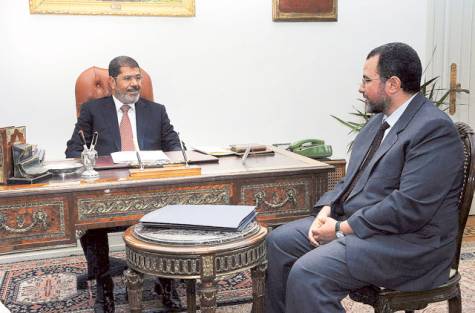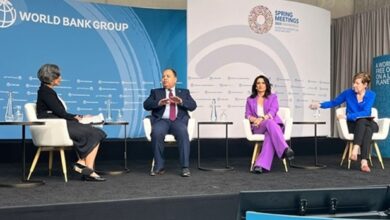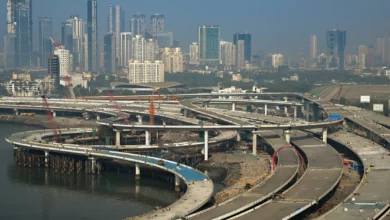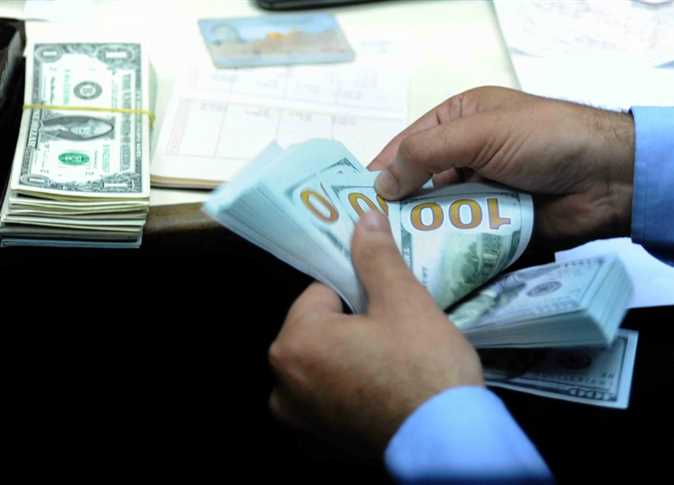
As Egypt's first permanent government since the overthrow of Hosni Mubarak took shape on Wednesday, the first names to emerge suggest a continuity that could aid the economy after 17 months of turmoil.
Yet the new administration's unclear powers and the scale of the challenges it must face dispel any optimism that Thursday's Cabinet unveiling will begin a new era of stability.
Career bureaucrat Momtaz al-Saeed, who has led efforts to secure urgent aid from foreign donors, remains finance minister and Osama Saleh, head of the General Authority for Free Zones and Investment, will lead a revived investment ministry.
For investors who fled in the absence of a stable, long-term government, there are still reasons to worry.
Saeed needs to show broad backing at home for any economic reforms to secure a long-awaited $3.2 billion emergency loan from the International Monetary Fund. A cabinet including more of his political opponents might have helped.
Parliament, the body that had the best claim to reflect the popular will, was dissolved in June, further eroding the legitimacy of any major reforms by the new administration.
The military leadership that took power from Mubarak now holds a veto over any legislation passed by Islamist President Mohamed Morsy's new team.
Political turmoil is likely to continue as long as there is no new constitution defining Morsy's powers or those of the armed forces, Egypt's power broker for the past six decades.
"This new government is positive in the sense that there is some kind of stability and no surprises," said Said Hirsh of Capital Economics. "But this is not about how capable the government is. It remains to be seen what this government and Morsy can do with the limited powers they have."
He said a major test would be whether Egypt secures the IMF loan to shore up its dangerously stretched finances. That would depend on whether the IMF views army approval of economic reforms as sufficient guarantee that they will be implemented.
New ideas?
Egypt's main share index rose 1.5 percent on Wednesday, adding to a 2 percent gain on Tuesday, as investors greeted the arrival of the new Cabinet a month after Morsy took office.
The new government has, if anything, a tougher task than its predecessor.
Funds are running out to finance government spending and support the pound currency since last year's popular uprising unseated Hosni Mubarak and plunged the economy into crisis.
The economy contracted in the first half of 2012 compared to the second half of 2011 and continued weakness in euro zone economies is sapping demand for Egyptian goods. A spike in world food prices threatens to swell Egypt's import subsidy bill.
Some investors welcomed the choice of Saleh for investment minister, a post that was dropped over the period of army rule.
"Egypt greatly needed the return of the Investment Ministry," said Ehab Saeed, head of research at Osool brokerage. "Saleh has great experience. There's no doubt he will face big difficulties attracting new investment, especially with the absence of a new constitution for the country."
Others were uneasy at an absence of many new faces, which could imply an absence of fresh ideas for shoring up weak foreign reserves and reducing sky-high state borrowing costs.
They also frowned on Morsy's decision last week to promote Irrigation Minister Hesham Qandil to the post of prime minister.
"The names of the economic ministers bring nothing new," said Nader Ibrahim, head of the board of Archer Consulting. "These people did not offer anything new in their recent period in office. I expect the government to fail quickly. Why did they pick a PM who has no experience of the economy?"
Dwindling funds
Once appointed, Morsy's new Cabinet will have to decide whether it should implement new and potentially painful austerity measures to help stabilize government finances and secure foreign financial help.
The outgoing army-backed government, which has been negotiating an IMF loan for months, drew up the new state budget to dovetail with IMF demands. The budget took effect on 1 July at the start of the 2012/13 financial year.
The IMF demanded that any loan get broad political support. At the time, this meant the army-controlled Cabinet needed the blessing of Morsy's Muslim Brotherhood, whose Freedom and Justice Party took almost half the seats in Parliament.
The FJP refused, saying the government had not provided it with enough details of the proposed IMF agreement or the budget to make a decision.
"A likely scenario is that the Muslim Brotherhood takes a decision in mid-August and an IMF negotiating team arrives in Cairo toward the end of August or early September," said the Western economist.
"If the substance deviates too much, the agreement would have to be renegotiated. If it doesn't, then agreement could be swift. But Morsy and his government are likely to want to make changes, to put new priorities," the economist said.
Although some of the Brotherhood's advisors are keen on reaching an agreement quickly, the official position has been that the final decision to approach the IMF would be made only once a government is formed.
"Our position has been clear all along. We have no objection to an agreement with the IMF, but only after looking at all the alternatives," the FJP's Ahmed al-Naggar, a member of the party's economics committee, said a day after Morsy took office.




